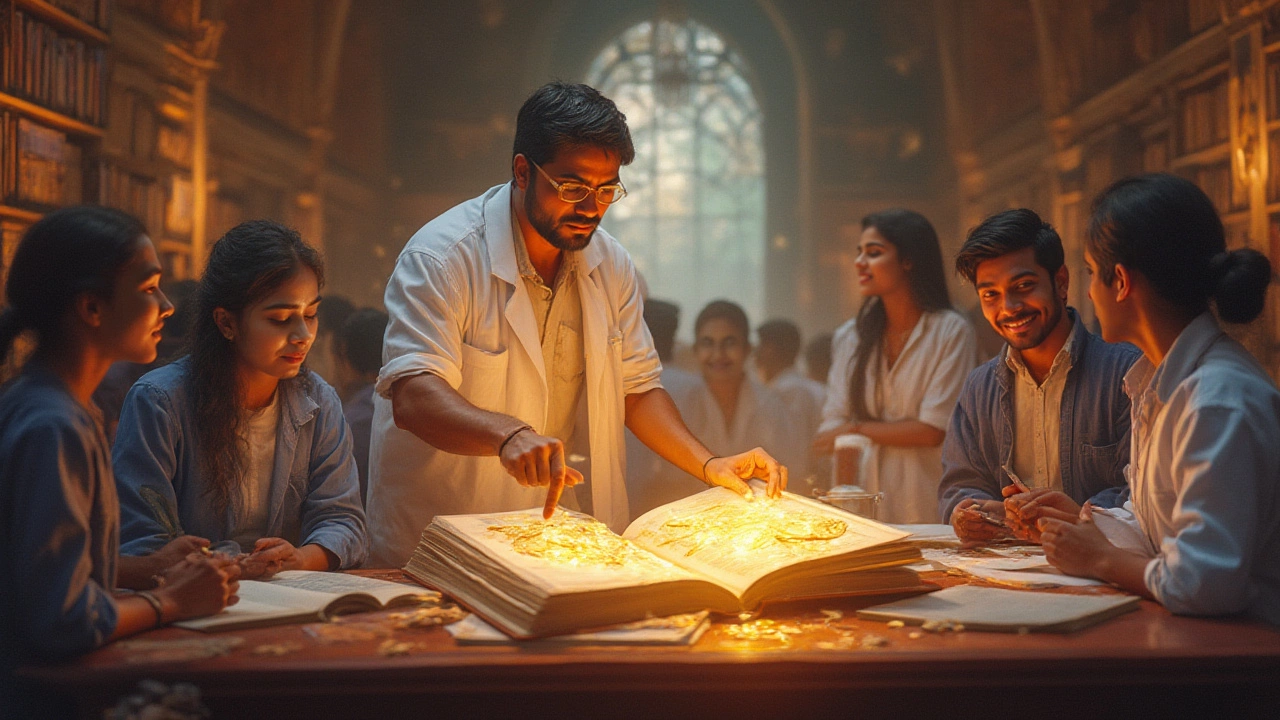Here’s a number that messes with your head: 528. That’s a perfect score on the MCAT, the Medical College Admission Test. Thousands of students eye that number each year, hoping it unlocks the doors of top med schools. But only a rare few ever see a score anywhere close. The stories swirling around the MCAT border on legendary—some call it a monster, others claim it’s overrated. So is the MCAT truly the hardest exam you’ll ever face, or just hyped up by anxious med hopefuls?
What Sets the MCAT Apart from Other Competitive Exams?
Sit down with any pre-med student and ask about the MCAT, and you’ll often get a sigh followed by at least ten minutes of venting. The MCAT isn’t just some biology pop quiz. Unlike many standardized tests, it chews up your stamina over 7.5 hours. Yes, that’s right. Add registration time, the tutorial, and breaks—all together you’re glued to that chair for nearly a full workday, blinking at tricky passages and graphs.
The test itself is no joke. It covers biology, chemistry (both general and organic), physics, psychology, sociology, and even critical analysis and reasoning skills. If you thought you could breeze through with last-minute cramming, think again. The questions aren’t just about memorizing facts. They’re about using what you know, connecting topics, and applying logic under serious time pressure.
Compare this to tests like the SAT, GRE, or LSAT. The SAT is long, but mostly high school content. The GRE is broad, but you won’t see much organic chemistry. The LSAT throws logic puzzles at you, but zero equations or oozing cells. The MCAT, meanwhile, is like getting hit with a full science textbook, then being asked to write a philosophical essay about it—all before lunchtime.
And here’s another curveball: the MCAT is designed to weed out, not just sort. The average acceptance rate for med schools in the U.S. hovers below 7%. That means lots of bright-eyed test-takers. Med schools don’t just want high scores, either—they want grit, endurance, and quick thinking under stress. And they know the MCAT is one place where that shows up on paper.
Feeling sick yet? Don’t worry, there’s good news. While the MCAT is brutal, its toughness comes from how it blends content with analytical skill. That means if you approach prep the right way, you can train your brain to think like the test writers. Some students say the trickiest part isn’t the science itself, but the way the test flips your expectations. One year, a section might pile on biochemistry, the next, it’s loaded with psychology. There’s a reason prep courses are a huge industry, and MCAT forums are packed with “My test was NOTHING like my practice exams!” threads.
A couple of very specific facts set the MCAT apart. For example, the AAMC (the group that runs the MCAT) published in 2024 that successful test-takers average over 300 hours of focused study. That’s about 12.5 full days without breaks. Most students actually prep for three to six months, squeezing in study sessions around classes, internships, or work. And let’s not forget: only about 0.02% of test-takers ace the MCAT each year, while an even smaller fraction break the 525 barrier. Those numbers speak volumes about the level of commitment required.

How Does the MCAT Compare to Other Famous Hard Exams?
People love to argue about which test is the hardest. Some swear by the CFA (Chartered Financial Analyst) exams, while others raise the IIT JEE flag (yes, Indian engineers, we see you). Still, there’s a special kind of pressure when you walk into an MCAT testing room—maybe it’s because you’re not competing for a job or a single program, but for a chance at an entire career.
Let’s break it down against some giants:
- MCAT: 7.5 hours, covers four sections: Biological and Biochemical Foundations, Chemical and Physical Foundations, Psychological and Social Foundations, Critical Analysis and Reasoning.
- IIT JEE Advanced: One of India’s wildest, two-day marathon with math, physics, and chemistry. Super selective, with less than 2% making it.
- CFA Level I: Tricky finance concepts, grueling six-hour sit, low pass rates, but focused on one industry.
- USMLE Step 1: Another beast for med students—if you think the MCAT is tough, Step 1 brings even finer medical detail. But at least by then, you’re officially in med school.
- BAR Exam: For future lawyers. It’s super wide-ranging law content, and the stakes are high, but usually comes after years of legal education.
This doesn’t mean the MCAT is the biggest mountain out there, but it sure is one of the steepest for students juggling undergrad studies with high-stress test prep. Many students say the pressure comes not just from the content, but from what’s riding on the score—the next five to ten years of your life. If the IIT JEE is an all-out sprint up a mathematical hill, the MCAT is a marathon with pop quizzes, puzzles, and mental detours.
International students who have taken multiple exams often highlight how unique the MCAT’s style is. There’s less rote memorization than in exams like NEET (India’s medical entrance test), and more of a focus on connecting and interpreting information. Also, the MCAT’s CARS section (Critical Analysis and Reasoning Skills) is notoriously unpredictable: it could cover philosophy, pop culture, even obscure history—all paired with questions that feel more like riddles than comprehension checks.
Another thing: MCAT is actually taken on a computer, with an interface that some say adds another layer of fatigue. Flipping back and forth, highlighting text, and the forced breaks are all part of the mind game. Scoring, too, feels mysterious. Unlike the SAT, no one but the AAMC fully understands how raw scores turn into scaled numbers. So even after putting in those 300 hours, you might walk out of the exam room unsure if you aced it or bombed.
Some MCAT-takers argue that the hardest part is mental. You’re told for years that this test decides your future, that one bad day could end a dream you’ve worked toward since high school. The pressure isn’t always logical—but it’s real. And that, more than tricky chemistry or a confusing passage on abstract art, is why many call the MCAT the most intimidating exam out there.

Practical Tips, Tricks, and Insights from Real MCAT Warriors
Here’s the scoop from people who survived the MCAT jungle and lived to talk about it. First, the myth: some believe only “geniuses” do well on the MCAT. Nope. Consistency beats talent, hands down. The AAMC’s own stats show that students who stick to “active learning”—actually practicing, reviewing, taking full-length tests—outperform those who passively skim content. That’s as of their 2023 trends analysis, by the way.
So what really helps?
- Begin with a plan—smart warriors chart a week-by-week, even day-by-day study schedule. Not every hour needs to be accounted for, but you need clear checkpoints.
- Mix up your study zones. Ever heard of “context-dependent memory”? Switching locations helps what you learn stick, making it easier to recall in a sterile test center room.
- Full-length practice exams. Not one, not two—think 6 to 10. Time them, make them as real as possible. This builds stamina and shows you where you trip up. And track progress! Use a spreadsheet or a good old notepad with strengths and weak spots by date.
- Don’t skip reviewing wrong answers. It stings less to rush by what you missed, but those are gold mines for improvement. Jot down not just “which” questions you missed, but “why.”—was it content, confusion, misreading, or panic?
- Get super familiar with MCAT’s unique passages. CARS and science passages are loaded with traps. Don’t rush. Many say reading for the main point, not tiny details, improves scores over time.
- Join or start a study group. Verbalizing your thought process cements concepts way faster than silent reading.
- Don’t forget self-care. The last two weeks before the MCAT, focus on sleep, nutrition, and de-stressing. A foggy brain can turn easy questions hard.
Some practical hacks:
- Use Anki or other spaced repetition flashcards. The MCAT is about pattern recognition as much as raw memory.
- Focus extra on topics that keep repeating in AAMC sample questions. Electrochemistry, amino acids, and experimental design crop up again and again.
- For CARS, read opinion pieces from sources like The Economist or The Atlantic. The structure and tone mimic MCAT’s approach.
- If you keep bombing timing, practice “chunk reading”—read a paragraph, mentally summarize, move on. Don’t get lost in details you don’t need.
Lastly: manage expectations. There are folks who don’t hit their “dream score” but still get into great med schools. The MCAT is a huge deal, but it’s not the only thing on your application. Real stories on r/MCAT (yep, Reddit is a goldmine) show that grit, strategy, and adaptability matter more than raw IQ for this test. If you stumble, learn, adjust, and get back in the game—it’s what med school and medicine are all about.
If you’re prepping now, keep your eyes on the end goal, but don’t ignore the daily wins. You’ll look back one day and realize the MCAT’s real lesson isn’t in amino acid charts or chi-square statistics. It’s about learning how to learn—and how to outsmart the world’s most famous test writers, at least for a day.
